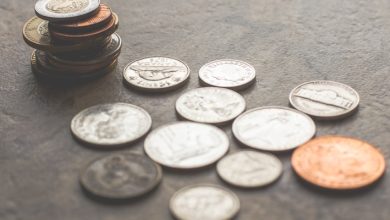NFTs in Music: How Artists Are Using Them

- The Rise of NFTs in the Music Industry
- Exploring the Potential of NFTs for Musicians
- How NFTs are Revolutionizing the Way Artists Interact with Fans
- Case Studies: Successful NFT Releases by Musicians
- Challenges and Opportunities for Artists Embracing NFTs
- The Future of Music and NFTs: What to Expect
The Rise of NFTs in the Music Industry
NFTs have been making waves in the music industry, providing artists with new opportunities to engage with their fans and monetize their work. The rise of NFTs in music has been fueled by the growing popularity of blockchain technology and the desire for artists to take control of their own creative output.
Artists are using NFTs to sell digital assets, such as exclusive music tracks, concert tickets, and even virtual meet-and-greets. This allows them to connect directly with their fans and create unique, one-of-a-kind experiences that cannot be replicated.
One of the key benefits of NFTs in the music industry is the ability to create scarcity and exclusivity around digital content. By minting a limited number of NFTs for a particular song or album, artists can drive up demand and increase the value of their work.
Furthermore, NFTs provide artists with a way to ensure that they are fairly compensated for their music. By selling NFTs directly to fans, artists can bypass traditional record labels and streaming platforms, allowing them to retain a larger share of the profits.
Overall, the rise of NFTs in the music industry represents a significant shift in how artists interact with their fans and distribute their music. With the potential to revolutionize the way music is bought, sold, and consumed, NFTs are likely to play an increasingly important role in the future of the music business.
Exploring the Potential of NFTs for Musicians
Musicians are increasingly exploring the potential of Non-Fungible Tokens (NFTs) as a new way to connect with their fans and monetize their art. NFTs allow artists to create unique digital assets that can be bought, sold, and traded on blockchain platforms. This opens up a whole new world of possibilities for musicians looking to engage with their audience in innovative ways.
One of the main benefits of NFTs for musicians is the ability to create scarcity and exclusivity around their work. By releasing limited edition NFTs of their music, artwork, or other digital content, artists can drive up demand and create a sense of urgency among their fans. This can lead to increased revenue streams and a more loyal fan base.
Another advantage of NFTs for musicians is the potential for royalties and smart contracts. With NFTs, artists can embed royalties directly into the digital asset itself, ensuring that they receive a percentage of any future sales. This can provide a more sustainable income stream for musicians, especially in an industry where streaming revenue can be unpredictable.
Overall, NFTs offer musicians a unique opportunity to explore new ways of connecting with their fans and monetizing their creativity. By leveraging the power of blockchain technology, artists can create, sell, and distribute digital assets in ways that were not possible before. As the NFT space continues to evolve, it will be exciting to see how musicians continue to push the boundaries of what is possible in the digital age.
How NFTs are Revolutionizing the Way Artists Interact with Fans
NFTs have completely transformed the way artists engage with their fans, offering a new level of interaction and ownership in the digital space. Through NFTs, artists can create unique, one-of-a-kind digital assets that fans can purchase and collect, giving them a tangible connection to the artist and their work. This direct-to-fan model allows artists to bypass traditional intermediaries and connect with their audience on a more personal level.
By leveraging blockchain technology, artists can also ensure the authenticity and scarcity of their digital creations, adding value to the NFTs and incentivizing fans to invest in them. This has opened up new revenue streams for artists, allowing them to monetize their work in ways that were previously impossible. Additionally, NFTs enable artists to engage with their fans in innovative ways, such as offering exclusive content, experiences, and merchandise.
One of the key benefits of NFTs for artists is the ability to establish a direct relationship with their fans, cutting out middlemen and creating a more intimate connection. This direct engagement can lead to increased loyalty and support from fans, who feel a sense of ownership and investment in the artist’s career. As a result, artists can cultivate a dedicated fan base that is more likely to support them through purchases, streams, and other forms of engagement.
Overall, NFTs are revolutionizing the way artists interact with their fans, offering new opportunities for creativity, ownership, and engagement in the digital age. By embracing this technology, artists can unlock new revenue streams, connect with their audience in unique ways, and build a loyal fan base that supports them in their artistic endeavors.
Case Studies: Successful NFT Releases by Musicians
One successful NFT release by a musician was by British DJ and producer Calvin Harris. He collaborated with the visual artist Deadmau5 to create a series of unique digital artworks that were sold as NFTs. These NFTs featured exclusive unreleased music tracks by Calvin Harris, making them highly desirable to his fans and collectors alike. The release generated significant buzz in the music and NFT communities, resulting in a successful sale and increased visibility for the artist.
Another musician who found success with NFT releases is Canadian singer-songwriter Grimes. She auctioned off a collection of digital art pieces and music through NFTs, with each piece accompanied by a unique audio track. Grimes leveraged her existing fan base and the growing interest in NFTs to create a highly sought-after collection. The auction generated a substantial amount of revenue for the artist and further solidified her reputation as an innovative creator in the music industry.
American rapper Lil Nas X also made headlines with his NFT release tied to his hit single “Old Town Road.” He offered a limited number of NFTs that granted exclusive access to new music, merchandise, and even a chance to meet the artist in person. The scarcity of these NFTs, combined with the promise of unique experiences, drove up demand and resulted in a successful sale. Lil Nas X’s foray into the world of NFTs demonstrated how artists can use this technology to engage with fans in new and exciting ways while generating revenue.
Challenges and Opportunities for Artists Embracing NFTs
Artists embracing NFTs in the music industry are faced with a unique set of challenges and opportunities. While non-fungible tokens offer a new way for musicians to monetize their work and connect with fans, there are also hurdles to overcome in this rapidly evolving space.
One challenge for artists exploring NFTs is the technical complexity involved in minting and selling these digital assets. Many musicians may not have the technical skills or resources to navigate the intricacies of blockchain technology and smart contracts.
Another obstacle is the environmental impact of NFTs, with concerns about the carbon footprint associated with minting and trading these digital assets. Artists need to consider the sustainability implications of their NFT projects and explore eco-friendly alternatives.
Despite these challenges, there are also significant opportunities for artists embracing NFTs. NFTs offer a new revenue stream for musicians, allowing them to sell exclusive content directly to fans without intermediaries. This direct-to-consumer model can empower artists to take control of their careers and financial futures.
Furthermore, NFTs enable artists to engage with their audience in innovative ways, such as offering limited edition collectibles, access to virtual events, or unique experiences tied to their music. This can help build a stronger connection with fans and create new opportunities for creative expression.
The Future of Music and NFTs: What to Expect
The future of music and non-fungible tokens (NFTs) is an exciting and rapidly evolving landscape. As artists and musicians continue to explore the potential of NFTs, we can expect to see a variety of innovative use cases emerge. From tokenizing albums and songs to creating unique digital collectibles, the possibilities are truly endless.
One of the key benefits of NFTs in the music industry is the ability to provide artists with new revenue streams and opportunities for direct engagement with fans. By minting NFTs of their work, musicians can not only sell exclusive digital content but also establish a direct connection with their audience. This direct relationship can lead to increased fan loyalty and support, as well as new ways for artists to monetize their creativity.
Additionally, NFTs have the potential to revolutionize the way music is distributed and consumed. With the rise of decentralized platforms and blockchain technology, artists can now bypass traditional gatekeepers and take more control over their music. This new paradigm shift in the music industry is empowering artists to explore new business models and experiment with alternative ways of sharing their art with the world.
In the coming years, we can expect to see even more collaborations between musicians, visual artists, and technologists as they push the boundaries of what is possible with NFTs. From interactive music videos to virtual concerts and beyond, the future of music and NFTs is sure to be a fascinating journey filled with creativity and innovation. As this exciting new chapter unfolds, we can look forward to a more decentralized, transparent, and inclusive music industry that benefits artists and fans alike.




